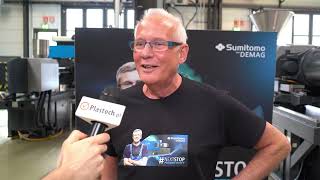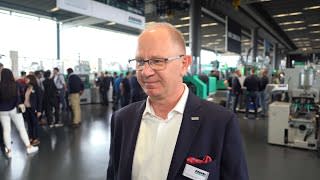 Rhodia is announcing the upcoming launch of polyamide (PA) powders for rapid prototyping and small series manufacturing by selective laser sintering (SLS). This is the first time that PA 6 powders are offered for direct part fabrication by SLS. The range will be extended to include PA 66 powders in the coming months.
Rhodia is announcing the upcoming launch of polyamide (PA) powders for rapid prototyping and small series manufacturing by selective laser sintering (SLS). This is the first time that PA 6 powders are offered for direct part fabrication by SLS. The range will be extended to include PA 66 powders in the coming months.Using SLS, designers and processors can produce complete families of fully functional prototype parts, each with different dimensions, one after the other, before they cut any metal for tooling. Once the design is validated, they can even use SLS for limited series commercial production.
Cutting-edge industries such as aerospace, automobile racing, robotics or medical prosthesis manufacturers have already adopted direct manufacturing technologies that aim to produce in a fraction of time customized design parts with properties similar to those made by traditional technologies.
Until now, growth of so-called “time compression” technologies beyond these sectors has been limited, partly because the choice of materials available for SLS is much more limited than it is for conventional molding. With the introduction of PA 6 powders, the same polyamides can be used for prototyping and for injection molding. “With processing properties perfectly adapted to SLS laser sintering – as well as other fabrication techniques based on addition of layers of powder – this new product range makes these innovative technologies much more accessible than before, opening the way to new applications and new markets,” says Jean-Pierre Marchand, Director of Marketing and Innovation for Rhodia’s Engineering Plastics activities.
The part of the rapid prototyping/manufacturing sector using these additive technologies (as opposed to machining, or subtractive technologies) has a current turnover of around €800 million, with a potential estimated to reach €3 billion in 2015. “In this context, the potential for SLS powders is forecast to rise to between €100 million and €200 million by 2020,” explains Pierre-Emmanuel Lucas, Director of the PA Powder Project at Rhodia. “With this new range of materials, Rhodia expects to play an important part in this market.”
Polyamide engineering materials are now into their eighth decade of commercial use. As a technological leader, Rhodia is proving once again with this new kind of resins that innovation field in polyamides has no limit.


